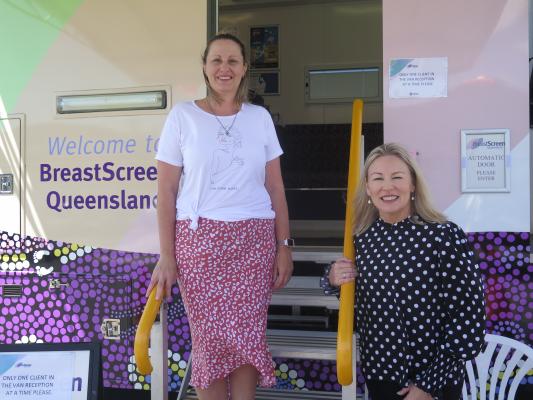For Rene Neitz, being told she had breast cancer at just 43 was shocking and unimaginable.
“It was very scary to think I had this little thing growing in my body and there were no signs presenting to me that it was happening,” Rene said.
In February, the mum-of-two was asked by her GP if she had been for a mammogram because she was “of the age” being over 40.
“I got back to work and told my work buddy that I was told I should go for a mammogram and shrugged it off, but this little guardian angel friend of mine said she had to book hers in so we booked them in at the same time.”
The Coolum Beach resident went for her mammogram and within two weeks was called back for further testing after an abnormal mass was found on her chest wall.
Following further mammograms, ultrasounds and a biopsy, Rene – who had no family history of breast cancer – was diagnosed with Stage 1 hormone positive breast cancer.
“We lost my husband’s mum to breast cancer and we never imagined it would touch our family again,’’ she added.
The 1.6cm growth was removed as well as four lymph nodes – all while the COVID-19 pandemic was at its peak.
“I’ve gone from being a healthy person who very rarely even takes Panadol to someone who is on a daily cancer drug and monthly hormone blocking injections. This was followed by four weeks of radiation treatment to my breast at the Adem Crosby Centre at the Sunshine Coast University Hospital.
“Everyone in that Centre is amazing, from the reception staff to the nurses and the radiation therapists.
“Daily treatment for cancer was overwhelming but I found myself relaxed and calm from their kindness. We’re very lucky here on the Sunshine Coast to have somewhere so close to home that we can go for treatment and not have to have the added stress of travel.”
Despite biopsy results showing Rene had an aggressive tumour (Grade 3), Rene said her prognosis was positive.
“A cancer diagnosis changes your whole life, I now live with constant fear it’s going to come back and how will I know if it does because I didn’t know the first time.
“I try not to think and dwell on where I could be now if I hadn’t gone for that mammogram when I did, but sometimes it pops into my thoughts and the fear and anxiety is real.”
October is Breast Cancer Awareness month and Rene hopes sharing her story will create awareness for women from the age of 40 to go and get checked.
“It’s really important that we spread the word that we check our breasts monthly if not daily and that we go for a breast screen every two years particularly once we turn 50 any tests that are recommended when we reach the age.
“The testing may be uncomfortable but the fear and pain of what could happen if we leave them unchecked far outweighs the small amount of discomfort that comes from having the tests done.”








